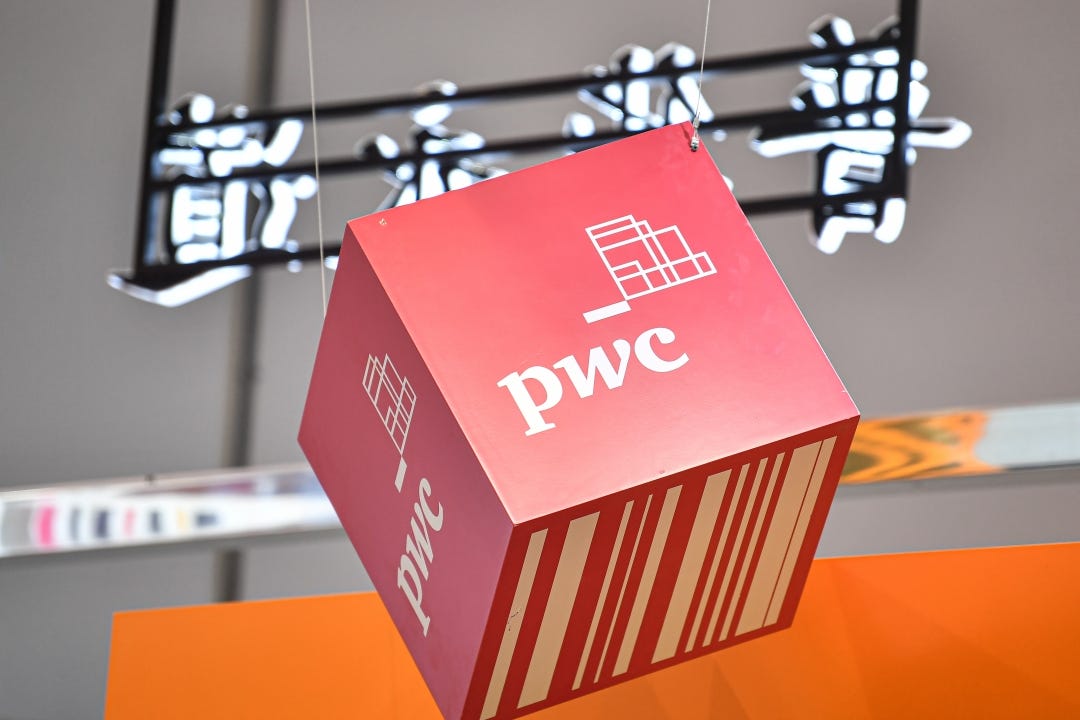Free to read: How to Pave the Road to Improved Audit Quality
The case of audit firm PwC China’s apparent complicity in developer Evergrande’s financial fraud highlights the need to improve the checks and balances of intermediary organizations
The case of PwC China’s apparent complicity in developer Evergrande’s financial fraud highlights the need to improve the checks and balances of intermediary organizations. Photo: VCG
As PricewaterhouseCoopers, a “Big Four” accounting firm, awaits punishment for its involvement auditing work for a subsidiary of scandal-struck property giant China Evergrande Group, it faces new challenges. Several major clients, including state-owned enterprises PetroChina Co. Ltd. and China Railway Group Ltd. announced they will no longer work with PricewaterhouseCoopers Zhong Tian LLP (PwC China). Earlier, Dahua Accounting Firm’s involvement in the Jintongling financial fraud landed it with a 34.4 million yuan ($4.7 million) fine, 6.9 million yuan of business revenue confiscated, and a six-month suspension from securities services. For leading firms like PwC China and Dahua, these scandals not only damage their reputations but also pose existential threats.
Accounting firms are integral to the capital market, providing multiple services including auditing that play a crucial role in enhancing information quality and maintaining market order. In the triangular relationship among regulators, intermediaries and companies, intermediaries are not only service providers to businesses; their professional opinions are also vital for public investors in assessing the quality of listed companies. A robust capital market environment indisputably relies on high-quality audit services.
The “Big Four” brands such as PwC have significantly contributed to standardizing China’s auditing practices and have facilitated the integration of the Chinese market into the global market. Now, as PwC China faces a crisis of trust, it is imperative to consider where exactly does the problem lie?
According to the original intent of market system design, professionalism and independence are fundamental to the auditing industry. Once an intermediary colludes with a business to commit fraud, regardless of the excuses, its foundational integrity collapses. The reliability of numerous unqualified audit reports — which conclude that financial statements of a company are fair and transparent based on thorough research — are inevitably thrown into question. Local regulators have identified flaws in independence and professional capabilities among audit institutions, leading them to overlook financial fraud; some pursue scale and ranking through mergers and rapid expansion, neglecting internal management; partnerships operate independently within the same firm, leading to ineffective integrated management and a nominal quality control system. Clearly, in such a scenario, intermediaries that should compete based on professionalism fall into a race to the bottom, compromising their integrity for short-term and personal gains.
To rectify this disorder and improve audit quality, regulators are investigating major cases, with routine inspections progressing. Authorities have repeatedly emphasized “dual investigations per case,” urging and warning gatekeepers to fulfill their duties. Due to negligence in practice, several intermediary organizations have been subjected to investigations by the China Securities Regulatory Commission (CSRC). The regulation of accounting firms falls under the jurisdiction of both the Ministry of Finance and the CSRC. In 2023, the finance ministry organized inspections of 2,161 accounting firms, an increase of 16.56% from the previous year, imposing administrative penalties on 197 accounting firms and 509 registered accountants, marking increases of 13.22% and 21.77%, respectively. Nine firms had their licenses revoked and 49 were suspended from business operations. Additionally, over 200 listed companies received “non-standard” audit opinions in their 2023 annual reports, and with internal control audit opinions included in the delisting criteria, their number may further increase. The effectiveness of stringent oversight is becoming apparent, and the essential role of audit gatekeepers is being restored, a development that merits affirmation.
However, more challenging and crucial than post-event accountability is preventative regulation, which involves strengthening internal governance and quality control systems within intermediary organizations to build their awareness and capability of self-regulation. For instance, “drawer agreements” for contingent fees, often related to listing or bond issuance rewards, were once widespread. By aiming for reward fees, service organizations inevitably become close to companies, undermining their professionalism and independence. Regulators have explicitly banned accounting firms from offering audit services on a contingent fee basis but enforcing this prohibition and eliminating “drawer agreements” requires additional mechanisms. Undoubtedly, the internal governance of intermediary organizations reflects the maturity of the industry and is fundamental to whether a competitive market mechanism can function effectively.
It must be noted that these issues not only highlight gaps in supervision and a severe shortage of inspection resources but also the ineffectiveness of external oversight, particularly from the media. For instance, financial institutions and rating agencies had pointed out Evergrande’s potential for fraud or collapse years ago. Regrettably, these warnings were not taken seriously. Moreover, some listed companies brazenly commit fraud, often disregarding basic accounting principles, and it usually takes a crisis to bring such actions into the public eye. Undoubtedly, this calls for reflection: why do the capital market’s error correction mechanisms frequently fail? The reasons are complex, clearly, market transparency must be improved.
As China’s capital market develops, accounting firms and other intermediary organizations have significantly improved in terms of business scale and the educational level of their personnel. In tandem, regulation has become increasingly comprehensive and strict. Firms like Dahua and PwC China eventually face market penalties for their faults. To build a strong financial system, it is crucial to strive for improved audit quality. Now, how to transform some intermediaries’ race to the bottom into a race to the top poses a serious and significant challenge for regulators, industry professionals and investors alike.




